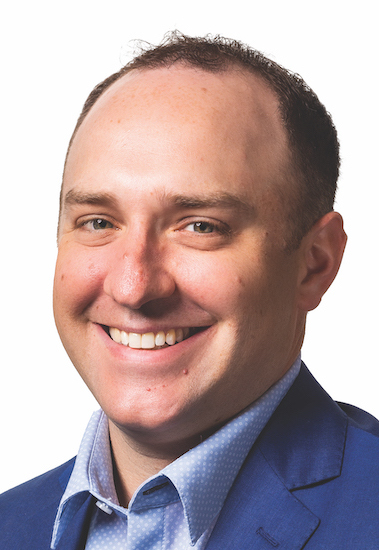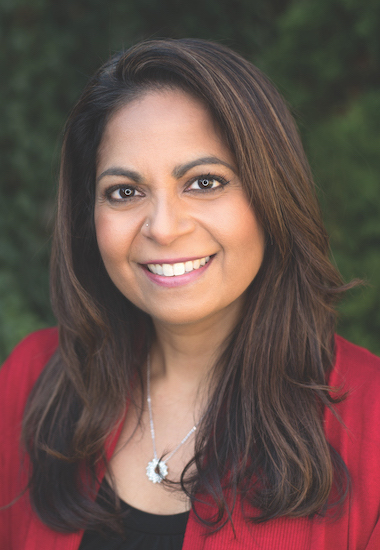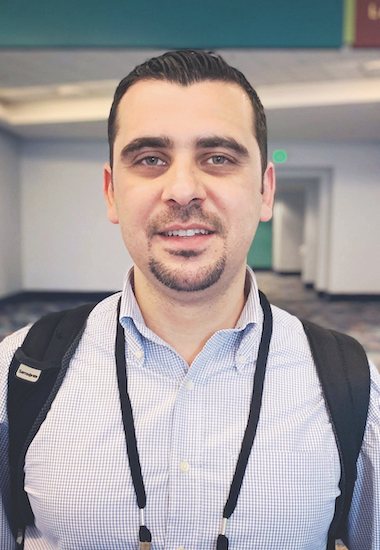What is 'imposter syndrome,' and how do you overcome it?
New dentists could be more susceptible to feelings of doubt




New dentists and dental students aren't the only ones who suffer from what is known as "imposter syndrome."
But they could be more susceptible to those feelings than older, more experienced dentists, as they face new situations and possibly doubt their abilities, especially when they are placed in a new setting or performing a new procedure.
Muhalab Al Sammarraie, D.D.S., a San Diego-based new dentist, said that in one of his first jobs after graduating from dental school, he felt lost and hesitant.
"Others who worked with me in those organizations sometimes directly told me, 'What are you doing here?' and 'You don't belong to this career at all, and it's not for you,'" he said. "At that time, I questioned myself and doubted my skills."
Alex Mellion, D.M.D., an Ohio-based orthodontist, said that early on, he felt anxiety in his profession despite years of training in dental school.
"I remember many times in my career, and especially in my early career, I was faced with a new situation and doubted that I was able to provide adequate care or live up to my own personal expectations," he said.
Dr. Mellion faced similar feelings of self-doubt as he ascended the leadership ladder of organized dentistry.
"I have been fortunate to serve on ADA committees as a dental student and again as a new dentist," he said. "I find that any time I enter any new group, there is always an acclimation period. Two years ago, I began serving on the ADA Council on Ethics, Bylaws and Judicial Affairs as the New Dentist Committee member to the council. Being a new or young dentist in this situation can be intimidating."
They are not alone, said Sheela Raja, Ph.D., associate professor and clinical psychologist at the University of Illinois Chicago colleges of medicine and dentistry. Imposter feelings are normal.
"Imposter syndrome isn't really a disorder," she said. "It's really a pretty common phenomenon where high-achieving people feel like they are somehow not good enough or that somehow they are a fraud — that everyone else really knows more than they do. Sometimes, if you come from a historically marginalized group, you may be more likely to experience this because you have fewer peers to talk to and get support from. You also have fewer role models, and that adds to a sense that you don’t belong."
Dr. Raja added there is so much going on in the lives of dental students and new dentists that it's easy for them to look around and think that everyone else — except themselves — has it figured out.
"High achievers hold themselves to high standards," she said. "And that makes it even more likely that you are looking at everyone else's 'best performance' or 'best day' and thinking that you need to perform at that level of excellence all the time."
Dr. Raja said there are ways to stave off feelings of imposter syndrome.
"Keep an eye on your thinking," she said. "For example, do you think something needs to be 'perfect' in order to celebrate? Celebrate completing something, even if it isn't perfect. Get support, particularly from mentors and people you trust. Save any small thing that gives you encouragement, like a thank-you card from a patient or an email from your friend that is cheering you on. On days you feel unsure about yourself, look at those for inspiration. Try to dig deeper into your feelings. Imposter feelings are really tied up with perfectionism. Try to identify great things about you that have nothing to do with your professional identity — for example, you know how to throw a great dinner party, you have a lot of fun on the golf course or you are great at crafting with your kids."
"Mentors help so much," Dr. Raja added. "And we can only do that if we continue to value diversity, equity and inclusion. The more kinds of people we have in the field, the more people can look around and say, 'Hey, I do belong here. Other people who look like me/from my background are here.' In fact, a little bit of uncertainty when you are first starting out professionally is healthy. It keeps you curious and learning."
Dr. Mellion was apprehensive about joining a group of more seasoned dentists on the Council on Ethics, Bylaws and Judicial Affairs, many with more than 30 years of experience on state and local committees pertaining to ethics and bylaws. But after a few meetings, with the support of other council members, he felt more comfortable.
"Now, I am proud of the input and accomplishments that I have made to CEBJA and the New Dentist Committee," he said. "Getting over the initial anxiety can provide for a meaningful impact and get past many of those 'imposter' feelings."
For Dr. Al Sammarraie, he learned that it was OK to, as he said, "be me."
"Learning and working on my emotional intelligence made me understand that I should not doubt myself," he said.



